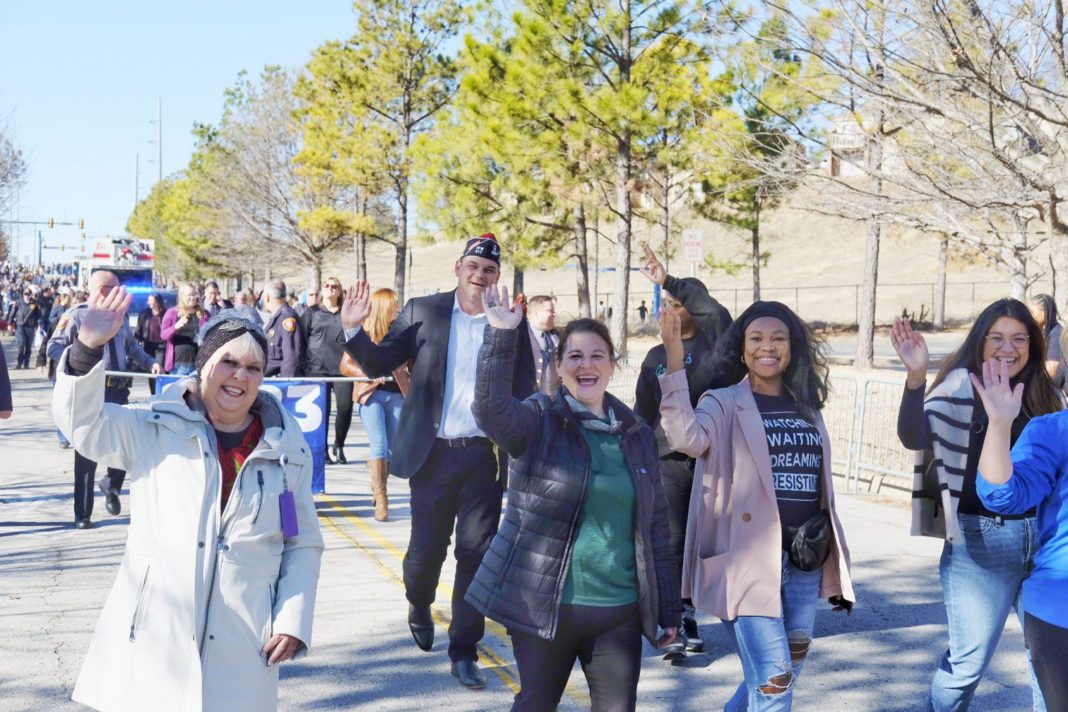The missions of the Oklahoma City and Tulsa Human Rights Commissions are simple: protect, promote and support the human rights of every person in the community, regardless of race, sex, nationality, ethnicity, language, religion or other status.
OKC’s Human Rights Commission met this January for the first time in 27 years – and Tulsa’s commission has been a catalyst in making that a reality.
OKC Human Rights Commission
The previous OKC Human Rights Commission met from 1980 until the city council disbanded it in 1996. However, Mayor David Holt created the Human Rights Commission Task Force in 2020. After soliciting public comments on the ordinance, it passed on July 19, 2022.
“The Human Rights Commission will embody the city’s commitment to human rights and help build a community that respects human dignity and opportunity for every person,” said chairperson Valerie Couch in a press release.
The nine members of the OKC commission meet at 11 a.m. every other month. Each of the eight city council members recommended one person to the mayor to represent their ward. Mayor Holt appointed one person at large, who serves as chair. The ordinance establishing the commission requires one member to be a lawyer.
Tulsa Human Rights Commission
While OKC’s commissioners are just getting their footing again, the Tulsa Human Rights Commission has been making strides to take care of its local citizens’ everyday needs – like education, housing, health and justice.
“The promotion and protection of human rights is an important part of Tulsans feeling a sense of belonging, safety and social cohesion,” says Krystal Reyes, City of Tulsa’s chief resilience officer. “The commission has a key role to play to improve the day-to-day life of Tulsans.”
Tulsa’s commission is made up of 15 members, individually appointed by the mayor and confirmed by the Tulsa City Council. They serve for three years. There must be an advocate for veterans, people with disabilities, the LGBTQIA+ community, as well as liaisons from the Latinx, African American, Mayor’s Commission on the Status of Women, and Indian Affairs Commission, alongside eight at-large members.
Tulsa commissioners meet at 3:30 p.m on the third Monday of every month in City Hall. They also meet independently to work on committee-related business and attend various events on behalf of the commission.
Reyes says some of the commission’s primary goals and accomplishments from the past year include:
- Serving as the model for the reformation of the OKC City Human Rights Commission;
- Celebrating International Human Rights Day by launching the inaugural Tulsa Humanitarian of the Year Award in December; the commission honored Vicky Langston, who started a program called Open Tables to bring together people from different faiths, as well as posthumously honored Richard Jackson, who launched a program in the mid-1990s to provide tax services to low-income Tulsans;
- Mayor G.T. Bynum signing a proclamation stating that Dec. 10 was “World Human Rights Day” in Tulsa;
- Voting to send a letter addressed to Speaker Pelosi and Representative Hern in support of Kimberly Teehee, a member of the Indian Affairs Commission, being sat as a delegate in the House of Representatives in honor of the New Echota Treaty of 1835;
- The Compassionate Tulsa Committee of the Human Rights Commission awarding a compassionate Tulsan award at each monthly meeting; more information about Compassionate Tulsa can be found by visiting compassionatetulsa.com.


























